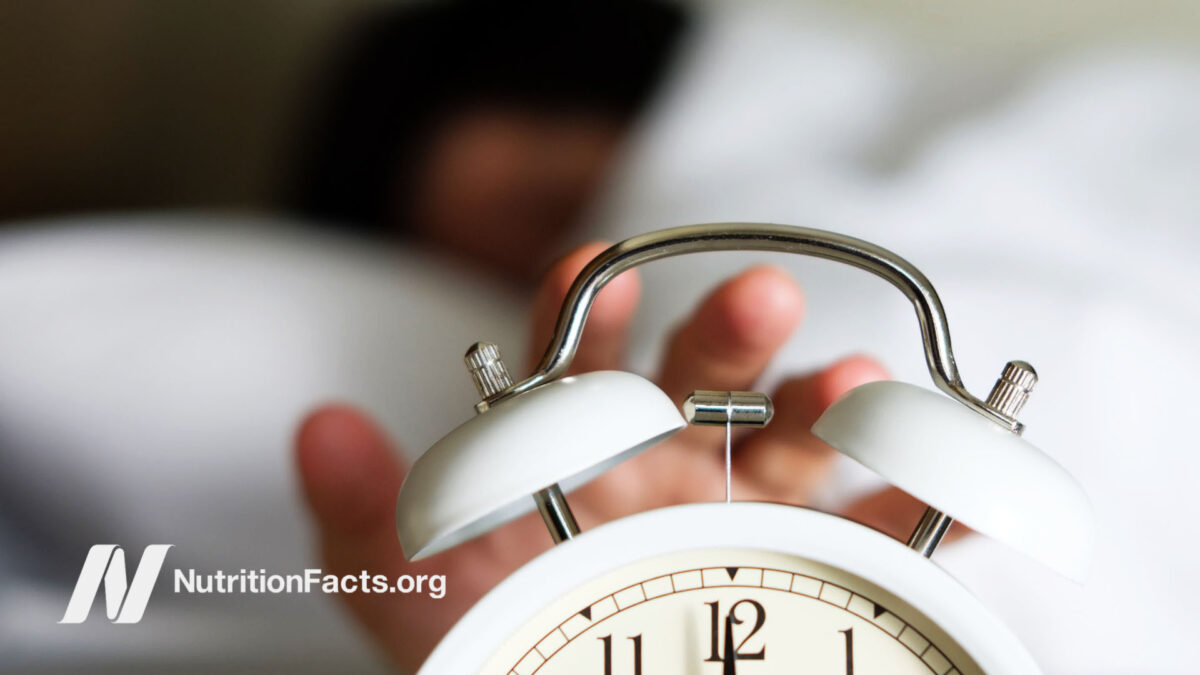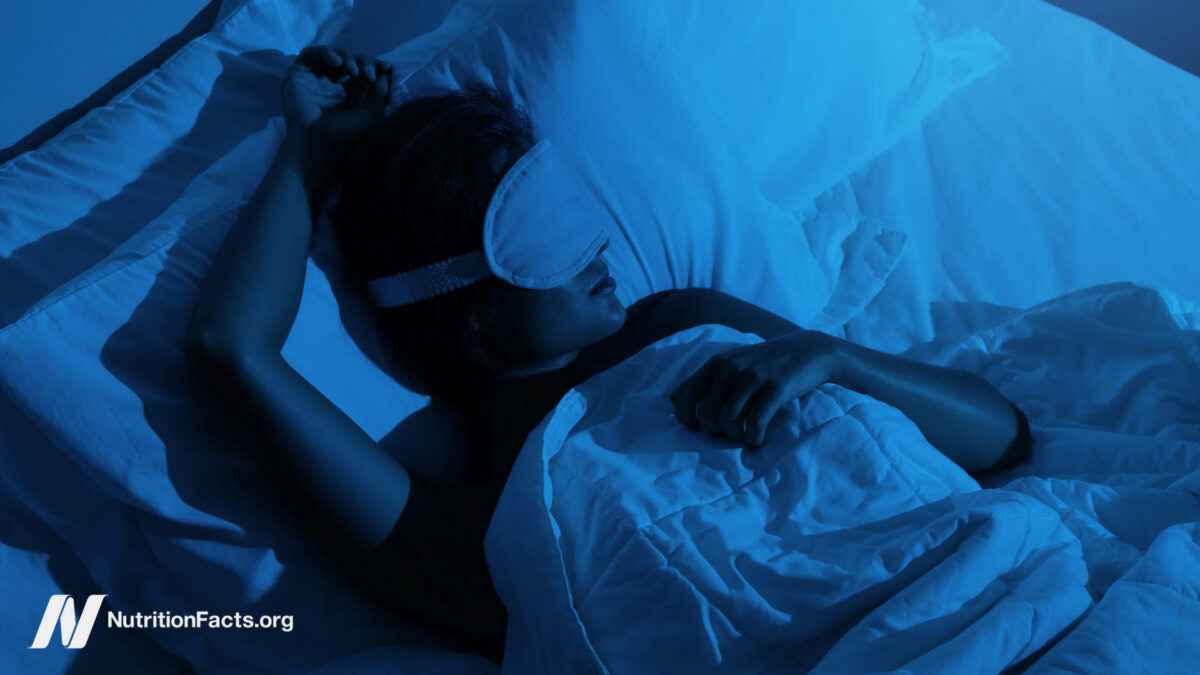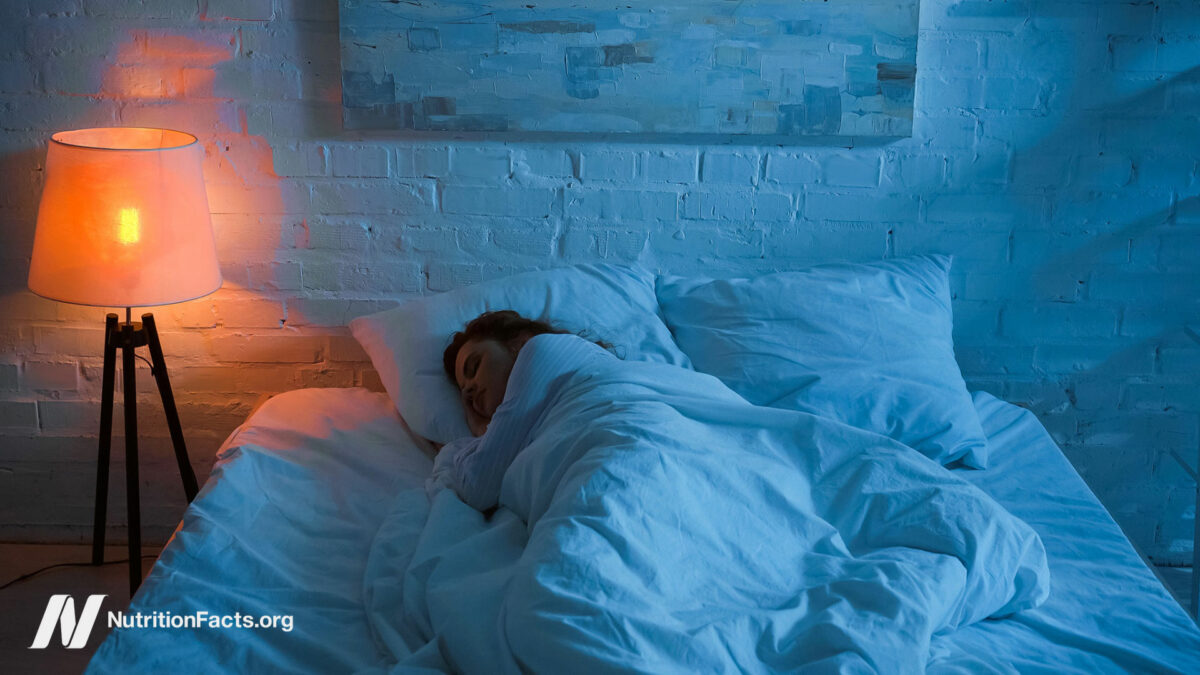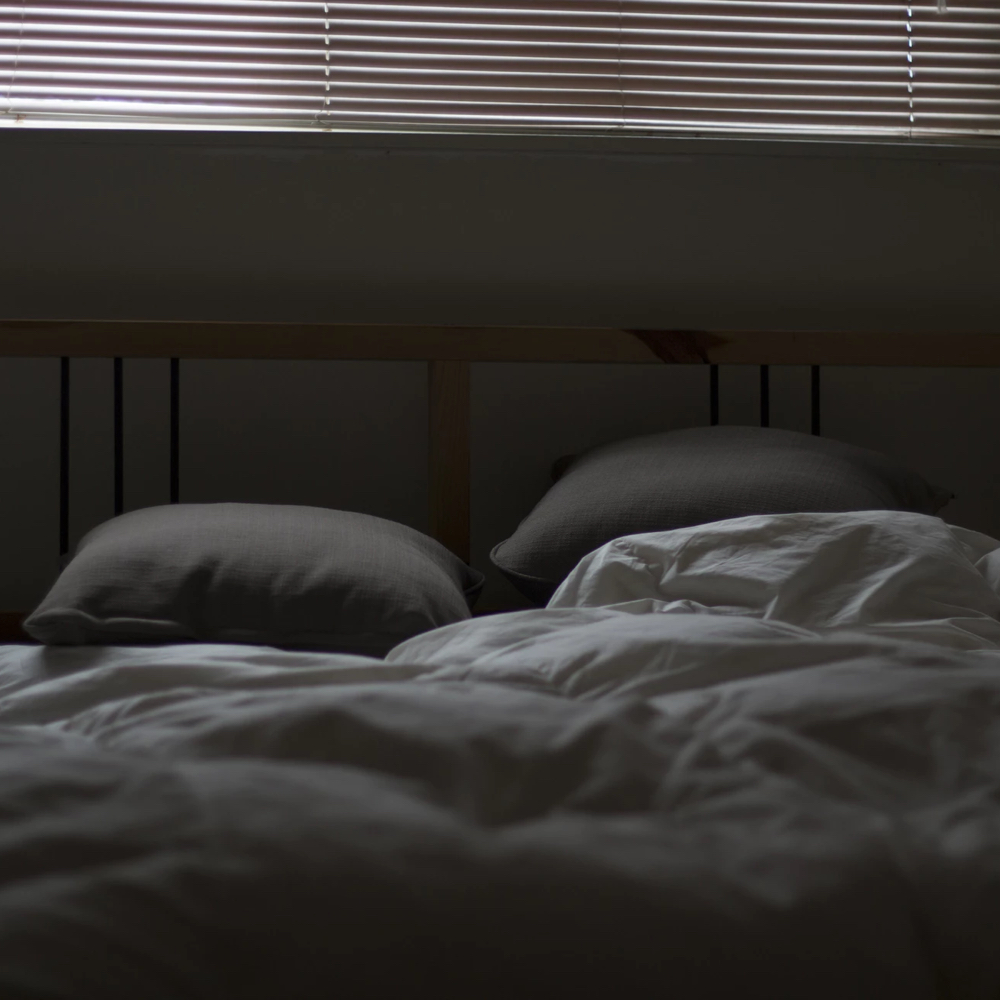
Sleep
How Much Sleep Do You Need?
Sleep is a great mystery. A trait shared across animal species, sleep must be of vital importance to survive natural selection pressures to eliminate such a vulnerable state. Sleeping too little and for too long are both associated with cutting one’s life short, with the apparent sweet spot at seven hours a night.
One function of sleep that has been elucidated in recent years is the clearance of toxic waste substances through a recently discovered drainage system in the brain. This could help explain why those who routinely sleep fewer than seven hours a night are at increased risk of developing cognitive disorders, such as dementia. The lowest risk for developing cognitive impairment was found for those getting seven to eight hours of sleep a night, and the same range was found for diabetes. Lack of sleep, or even too much of it, is also associated with increased stroke risk. Higher stroke rates have been found among individuals sleeping six hours or less, or nine hours or more, and those at lowest risk got around seven or eight hours of sleep a night.
How to Improve Sleep Quality
To improve our sleep, pills are a no-go. A significant association has been found between sleeping pills and premature deaths. Fatalities aside, nonpharmacological methods have been found to work as well or even better than drugs—and without side effects. Tart cherries, goji berries, and kiwi, for example, have been shown to help improve sleep.
Four Rules of Sleep Conditioning:
- Go to bed only when you’re sleepy.
- Only use the bed for sleep (and sex). No reading, eating, or screen time.
- If you can’t fall asleep within fifteen to twenty minutes or so, get up, leave the bedroom, and don’t go back until you’re sleepy again. Repeat as necessary.
- Get up at the same time every morning no matter how little sleep you have had.
Four Rules of Sleep Hygiene:
- Exercise regularly.
- Avoid caffeine, nicotine, and alcohol before bedtime.
- Make the bedroom dark, cool, comfortable, and quiet.
- Establish a relaxing bedtime routine.
For substantiation of any statements of fact from the peer-reviewed medical literature, please see the associated videos below.
Image Credit: Quin Stevenson / Unsplash. This image has been modified.
Popular Videos for Sleep


Do Mobile Phones Affect Sleep?
The effects of cell phone radiation on sleep quantity and quality.
Does Getting Enough Sleep Help You Lose Weight?
Even getting just one more hour of sleep a night may help with weight control.
Does Lack of Sleep Cause You to Gain Weight?
Those randomized to 8.5 hours of sleep a night lost significantly more body fat than...
How to Get a Good Night’s Sleep Without Sleeping Pills
Taking less than just 18 Ambien-class sleeping pills in an entire year may triple the...
Is Six Hours of Sleep Enough?
Just because we don’t have evidence that there is a growing epidemic of sleep deprivation...All Videos for Sleep
-

The Benefits of Black and Green Teas for Brain Waves
Of all the plants in the world, why has the tea plant become the most popular beverage in the world?
-

Who Should Avoid Coffee?
There are certain medical conditions that are worsened by coffee intake.
-

Risks and Benefits of Nicotinamide Mononucleotide (NMN), a NAD+ Booster
NR may just be a waste of money, safe but ineffective. NMN seems similarly useless in humans, but it may not even be safe.
-

Nitrates in Food to Help Fight Respiratory Tract Infections
Perhaps it’s no coincidence that an infusion of spinach leaves has evidently been used since ancient times to treat respiratory symptoms.
-

What Is Essential Hand Tremor and How to Prevent and Treat It
What is the role of dietary beta-carboline alkaloids in the development of the most common movement disorder?
-

Do Ashwagandha, Ginseng, and Maca Root Have Benefits for Female Sexual Dysfunction?
Which of these three works, which doesn’t, and which may be too toxic to take safely?
-

Melatonin Supplements for Sleep and Anti-Aging?
The secretion of melatonin appears to progressively decline with age, dropping as much as 70 percent between middle and older age.
-

The Best Way to Boost NAD+: Supplements vs. Diet (webinar recording)
The pros and cons of all the NAD+ supplements and what are the ways to boost NAD+ naturally with diet and lifestyle?
-

The Risks and Benefits of Mild Trendelenburg Position to Reduce Body Fat
Other than a “space headache,” what might be the downsides of sleeping at a slight head-down tilt to accelerate fat loss?
-

Lying at a Slight Head-Down Tilt (Trendelenburg Position) to Burn Fat
How might we trick our body into producing this fat-burning exercise hormone without lacing up our gym shoes?
-

Does Drinking More Water Help You Lose Weight?
Those who stay hydrated tend to maintain a healthier body weight, but is it cause and effect?
-

What Causes Wrinkles?
Over time, the skin folding caused by everyday facial expressions etches once-temporary grooves into permanent wrinkles, but only in the context of underlying structural damage.
-

The Best Sleeping Position for Glymphatic Flow in the Brain
What can we do to prevent the decline in glymphatic brain filtration as we age?
-

How Much Sleep Is Needed for Glymphatic Flow (Brain Cleaning)?
One function of sleep is the clearance of toxic waste byproducts through a newly discovered drainage system in the brain.
-

The Best Diet for COVID and Long-COVID
Healthy plant-based diets appear to help reduce the risk of severe COVID-19 and getting infected in the first place, even independent of comorbidities.
-

Book Trailer for How Not to Age
Learn about my newest book, How Not to Age, a New York Times Best Seller.
-

Yoga Put to the Test for MS, Back Pain, Neck Pain, Insomnia, and Breast Cancer
Is yoga better than other types of exercise, better than nothing but similar to other physical activity, or not beneficial even when it’s compared to doing nothing at all?
-

How to Get a Good Night’s Sleep Without Sleeping Pills
Taking less than just 18 Ambien-class sleeping pills in an entire year may triple the risk of dying prematurely.
-

What to Eat to Prevent Telomere Shortening
The anti-inflammatory and antioxidant properties of plant-based diets may explain why they can effectively reverse cellular aging by elongating telomeres.
-

Is Six Hours of Sleep Enough?
Just because we don’t have evidence that there is a growing epidemic of sleep deprivation doesn’t necessarily mean we are getting enough sleep.
-

Does Getting Enough Sleep Help You Lose Weight?
Even getting just one more hour of sleep a night may help with weight control.
-

Does Lack of Sleep Cause You to Gain Weight?
Those randomized to 8.5 hours of sleep a night lost significantly more body fat than those who got 5.5 hours.
-

Dietary Approach to Naturally Treating Menopause Symptoms
Specific foods have been shown in randomized controlled trials to improve symptoms like hot flashes.
-

The Best Diet for Healthy Aging
Swapping just 1 percent of plant protein in place of animal protein was associated with significantly less age-related deficit accumulation.
-

Natural Dietary Remedy for Insomnia
Lactucin, the hypnotic component of lettuce, is put to the test in a randomized, double-blind, placebo-controlled trial of lettuce seeds.
-

The Healthiest Natural Source of Iodine
How much nori, dulse, or arame approximate the recommended daily allowance for iodine?
-

Fasting for Autoimmune Diseases
Various fasting regimens have been attempted for inflammatory autoimmune diseases such as lupus, ankylosing spondylitis, chronic urticaria, mixed connective-tissue disease, glomerulonephritis, and multiple sclerosis, as well as osteoarthritis and fibromyalgia.
-

The Immune System and COVID-19 Treatment
Are there immune-boosting foods we should be eating?
-

How to Lower Lp(a) with Diet
What to eat and what to avoid to lower the cardiovascular disease risk factor lipoprotein(a).
-

Foods That Help Headache and Migraine Relief
Plant-based diets are put to the test for treating migraine headaches.
-

Why People Gain Weight in the Fall
A list of “specific recommendations for the prevention of obesity by improving the circadian system health.”
-

Shedding Light on Shedding Weight
Randomized, controlled trials of phototherapy (morning bright light) for weight loss.
-

The Metabolic Harms of Night Shifts and Irregular Meals
What shift workers can do to moderate the adverse effects of circadian rhythm disruption.
-

Chronobiology – How Circadian Rhythms Can Control Your Health and Weight
Given the power of chronotherapy—how the same dose of the same drugs taken at a different time of day can have such different effects—it’s no surprise that chronoprevention approaches, like meal timing, can also make a difference.
-

Are Weight-Loss Supplements Safe?
Only 2 out of 12 supplement companies were found to have products that were even accurately labeled.
-

The Benefits of Early Time-Restricted Eating
Calories eaten in the morning count less and are healthier than calories eaten in the evening.
-

Evidence-Based Weight Loss – Live Presentation
In this live presentation, Dr. Greger offers a sneak peek into his book How Not to Diet.
-

Potential Pitfalls of Calorie Restriction
How to preserve bone and mass on a low calorie diet.
-

Do Mobile Phones Affect Sleep?
The effects of cell phone radiation on sleep quantity and quality.
-

How to Treat Jet Lag with Melatonin-Rich Food
There may be a way to get the benefits of over-the-counter melatonin supplements without the risk.
